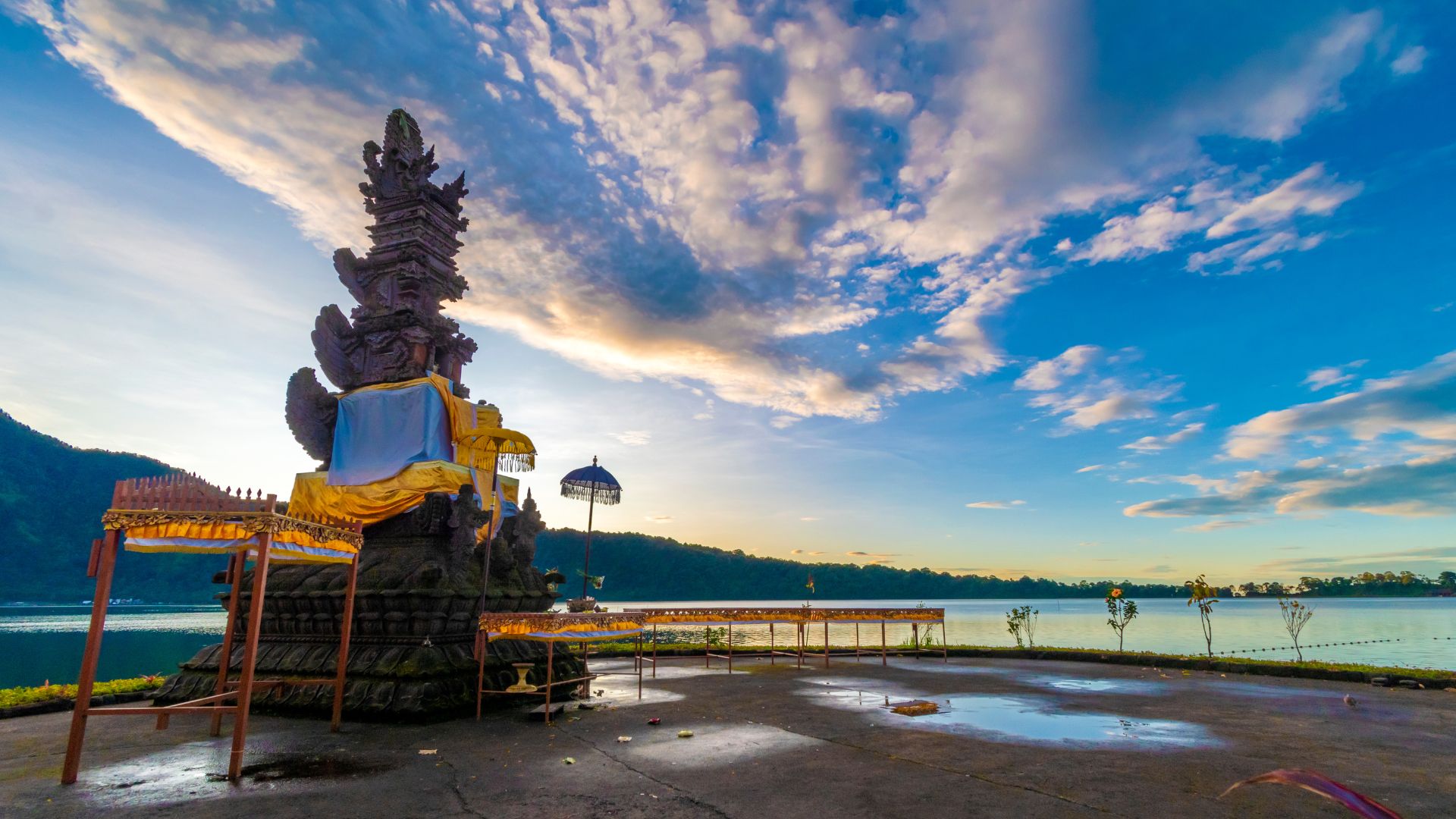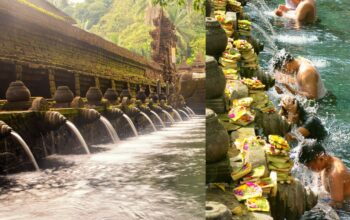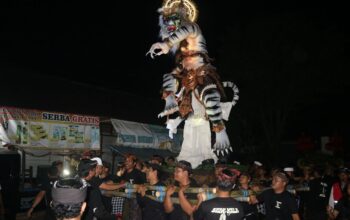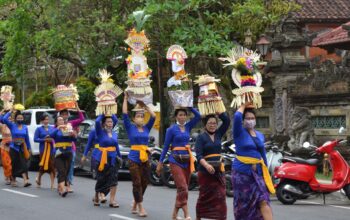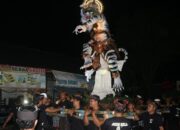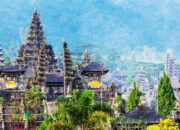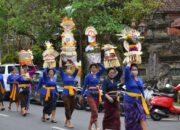Understanding the Basic Concept of Nyepi
For those of you who have been to or are planning a vacation to Bali, you might have heard about Nyepi Day. This celebration is quite unique because the entire island seems to “pause for a moment”. Roads are empty, the airport is closed, and even the internet can be turned off. But what exactly is Nyepi? Why is it celebrated? Let’s discuss it one by one so you can understand and appreciate this tradition better.
What is Nyepi?
Nyepi is a Hindu holiday in Bali that marks the turn of the year in the Saka calendar. Unlike most celebrations that are synonymous with crowds and parties, Nyepi is observed in total silence. All activities are stopped—no one leaves their home, shops are closed, and even the sound of vehicles is almost unheard. The aim is for self-reflection, calming the mind, and purifying the surrounding nature.
When is Nyepi Celebrated?
Nyepi usually falls around March, but the exact date changes every year because it follows the Saka calendar, not the Gregorian calendar. Generally, Nyepi is in March or sometimes late February. So, if you’re planning a trip to Bali, it’s best to check the Nyepi date for that year so you won’t be surprised to see all places closed and the streets totally empty.
Why is Nyepi Celebrated?
The main reason Nyepi is celebrated is as a form of self-purification and cosmic purification. In Balinese Hindu teachings, this day is an important moment to stop all worldly activities and return to oneself—introspection, contemplation, and starting the new year with cleaner energy. Nyepi also believed to be a way to calm “bhuta kala” or negative forces, so they do not disturb the harmony of the world.
What is the Meaning of Nyepi for Hindus?
Nyepi has significant meaning in the purification of the universe (Bhuana Agung) and the human self (Bhuana Alit). By stopping all forms of activity, Hindus believe that they are giving nature a break to recover from human intervention. The complete silence that envelops the island of Bali during Nyepi is a form of respect and offering to the environment. The core philosophy of Nyepi is strongly related to the concept of Tri Hita Karana, which is the perfect harmony between humans and God, fellow humans, and nature. By restraining themselves and not disturbing the environment, Hindus strive to achieve this existential balance.
Practices and Rules During Nyepi
Nyepi Day is not just an ordinary holiday in Bali. It is a time when the entire island truly “pauses”—no crowds, no traffic, and even sounds are almost unheard. But behind that silence, there are special rules observed by Balinese Hindus, which also affect everyone on the island, including tourists.
What are the prohibitions or restrictions during Nyepi?
During Nyepi, Hindus observe four main prohibitions known as Catur Brata Penyepian. These are not just rules, but a form of spiritual practice to cleanse oneself physically and mentally. Here’s the explanation:
- Amati Geni – Means not lighting fires or electricity. So, lights are turned off, no cooking with fire, and generally all activities using light are restricted. The goal is to control desires and learn to live simply.
- Amati Karya – Not doing any work, whether household chores or professional work. This is a time for total rest from routine.
- Amati Lelungan – Not traveling at all. Everyone is expected to stay at home or within their living area. Roads will be empty, and pecalang (traditional security officers) will patrol to ensure everyone complies with this rule.
- Amati Lelanguan – Not enjoying worldly entertainment or pleasure. So, no watching TV, no listening to music, no playing games, and other entertainment activities are temporarily stopped. The essence is that Nyepi Day is a time for silence, reflection, and connecting with nature.
Do tourists also have to follow the Nyepi rules?
As tourists, we are also required to respect the Nyepi rules when in Bali, even if we are not Hindus. Everyone in Bali—both locals and visitors—is expected to follow the basic rules: not leaving the house or hotel, not making noise, and minimizing light at night. Hotels usually still provide minimal food and services for guests, but guests are not allowed to leave the hotel premises. Some hotels offer quiet indoor activities that are in line with the Nyepi atmosphere, such as yoga, meditation, or spa services that do not use electronic devices.
What should I prepare if I am in Bali during Nyepi?
If you are in Bali leading up to Nyepi, there are several important things to prepare:
- Stock Food and Drinks: Since all shops and restaurants will be closed, make sure you have bought daily necessities one or two days before Nyepi. This includes drinking water, snacks, and ready-to-eat meals if you are not staying in a hotel.
- Power Bank and Lighting: Although electricity usually remains on, it’s good to have candles or flashlights just in case. Avoid using bright lights at night; close curtains so light is not visible from outside.
- Internet and Offline Entertainment: Sometimes internet networks are also turned off during Nyepi. Prepare books, offline movies, or other quiet activities. But remember, don’t make loud noises.
- Avoid Outdoor Activities: Do not try to go out on the street during Nyepi, as it is very disrespectful and you could be reprimanded by the pecalang. Just enjoy this rare moment for rest and reflection.
Series of Nyepi Ceremonies and Traditions
Nyepi Day is not just about one day of total silence, but there is a series of traditions performed before and after it. For the people of Bali, each stage in this celebration has deep meaning, from the symbol of self-purification to reconciliation. So, to help you understand better, let’s get acquainted with three important traditions that are part of the Nyepi celebration: Ogoh-ogoh, Tawur Kesanga, and Ngembak Geni.
Ogoh-ogoh
Ogoh-ogoh are giant effigies that resemble scary creatures or evil spirits. They are usually made from light materials such as bamboo, paper, and styrofoam, and then decorated with great detail. The creativity of the villagers is truly total here—the results can be very cool and terrifying at the same time. Ogoh-ogoh will be paraded around the village on the night before Nyepi, which is called Pengerupukan. The purpose? It symbolizes the expulsion of negative forces or evil elements from the environment and from within human beings. After being paraded with gamelan music and torches, the Ogoh-ogoh are usually burned. This signifies that all bad elements have been destroyed, and the community is ready to welcome the holy day in a clean state.
Tawur Kesanga
Tawur Kesanga is a large ceremony held one day before Nyepi, usually taking place at road intersections or sacred places. This ceremony aims to “rebalance” the universe and appease Bhuta Kala, which are negative energies or evil spirits that can disturb human life. In this ceremony, Hindus will offer various offerings or banten in the form of food, animals, and symbols of nature. This procession is carried out by priests (pemangku) and involves the entire village community. Tawur Kesanga is how the people of Bali show their gratitude and also a request for the world to remain harmonious, peaceful, and free from disaster.
Ngembak Geni
If Nyepi is a day of total silence, then Ngembak Geni is a time to “reignite life”. Usually taking place the day after Nyepi, Ngembak Geni is a moment when Balinese people return to their activities, but with a new heart, a clear mind, and a better spirit. On this day, people will visit each other, apologize to each other, and strengthen family and neighborly relationships. The tradition is similar to Eid or New Year for other faiths—there is an atmosphere full of peace and togetherness. The essence of Ngembak Geni is to restart life with cleaner intentions, after a full day of reflection and silence.
Experience and Impact of Nyepi
For those who have never experienced the atmosphere, it will certainly be surprising and awe-inspiring at the same time. No wonder many tourists—both local and international—are curious to experience this unique event themselves. But besides the experience, Nyepi also has a big impact, especially on nature.
How is the atmosphere in Bali during Nyepi?
The atmosphere in Bali during Nyepi is truly quiet and peaceful. Just imagine, all activities stop: no vehicles on the road, shops closed, and even the airport is closed for a full day. Even the sounds of horns and music are almost unheard. The night is also dark because most lights are turned off or minimized. For many people, this is a calming experience. You can hear the sounds of nature clearly—the wind, birds, even your own heartbeat! Many tourists admit that this is one of the most reflective moments they have ever experienced while in Bali. Even those who were initially confused or felt “confined” eventually felt grateful to have time to truly be quiet and think.
Are there differences in Nyepi celebrations in various regions of Bali?
In general, Nyepi celebrations throughout Bali have the same rules. However, each region may have additional traditions that make the atmosphere more distinctive. For example, some villages are more festive during the Ogoh-ogoh parade, while in other areas, the spiritual procession is more emphasized. Some traditional villages even have stricter rules. There, in addition to the four main prohibitions, residents are not allowed to turn on any lights at all and must remain completely silent throughout the day. Meanwhile, in tourist areas like Kuta or Seminyak, although still quiet, hotels usually still provide limited services for tourists. So, although the core is the same, the vibe and nuance of Nyepi can be slightly different depending on where you are.
How does Nyepi impact the environment?
This is one of the most extraordinary aspects of Nyepi: its impact on the environment. In one day without motor vehicles, without noise pollution, and without industrial activity, the air quality in Bali drastically improves. The sky becomes clearer, stars are more visible at night, and the temperature feels cooler. In recent years, data from environmental agencies have shown a significant decrease in carbon emissions in just 24 hours of Nyepi. In addition, Nyepi also serves as a “breath” for Bali’s nature, which is usually crowded with tourists and full of activity. Even wild animals are seen roaming more freely, due to the calm atmosphere and minimal human disturbance. This proves that one day of silence can have an extraordinary positive impact on the surrounding nature. Many hope that this concept can be adopted in other areas, even if only occasionally.
Conclusion
Nyepi Day is not just an ordinary holiday, but a sacred moment deeply respected by the Balinese Hindu community. Starting from the Ogoh-ogoh parade, the Tawur Kesanga ceremony, to the day of total silence during Nyepi, all have deep spiritual meaning—for self-purification, contemplation, and starting the new Saka year with a calmer and cleaner soul. The four prohibitions in Catur Brata Penyepian (not lighting fires, not working, not traveling, and not enjoying entertainment) are observed with full awareness, not only by Hindus but also respected by everyone in Bali, including tourists. This tradition also has a tangible positive impact on the environment—the air becomes cleaner, nature is calmer, and the earth seems to be given time to “breathe”. On the following day, Ngembak Geni symbolizes a new beginning—a time to mend relationships and open a more peaceful chapter of life. Nyepi is an invitation for all of us to pause from the hustle and bustle of the world, and to remember the importance of peace, harmony, and self-introspection. Although it is only one day a year, its effects can be felt much longer—both for oneself and for the surrounding nature.
